Tuli Mekondjo
OUSIE MARTHA
23 Jun - 18 Aug 2024
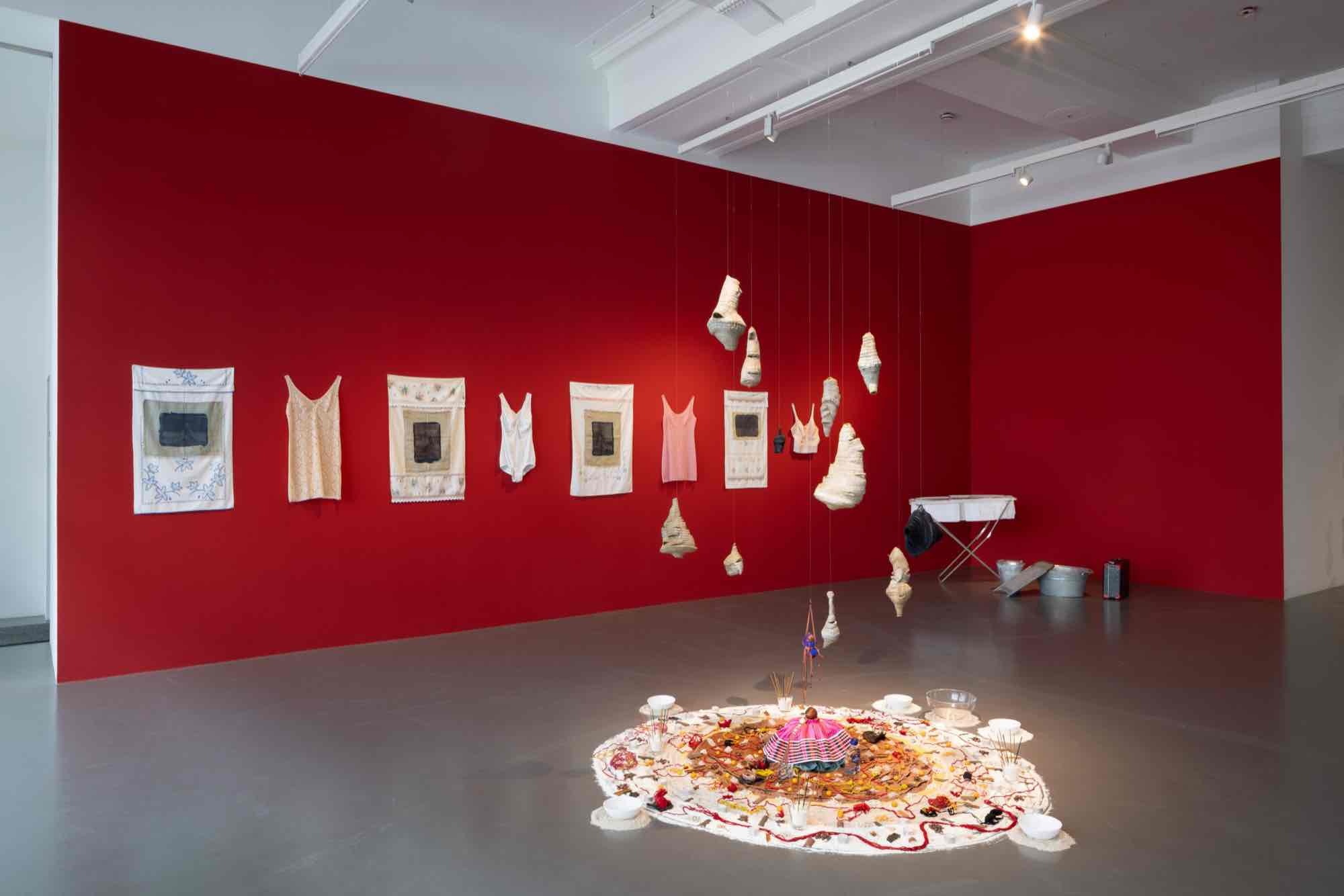
Exhibition views “Ousie Martha” daadgalerie 06/2024 (photos: Thomas Bruns / Berliner Künstlerprogramm)
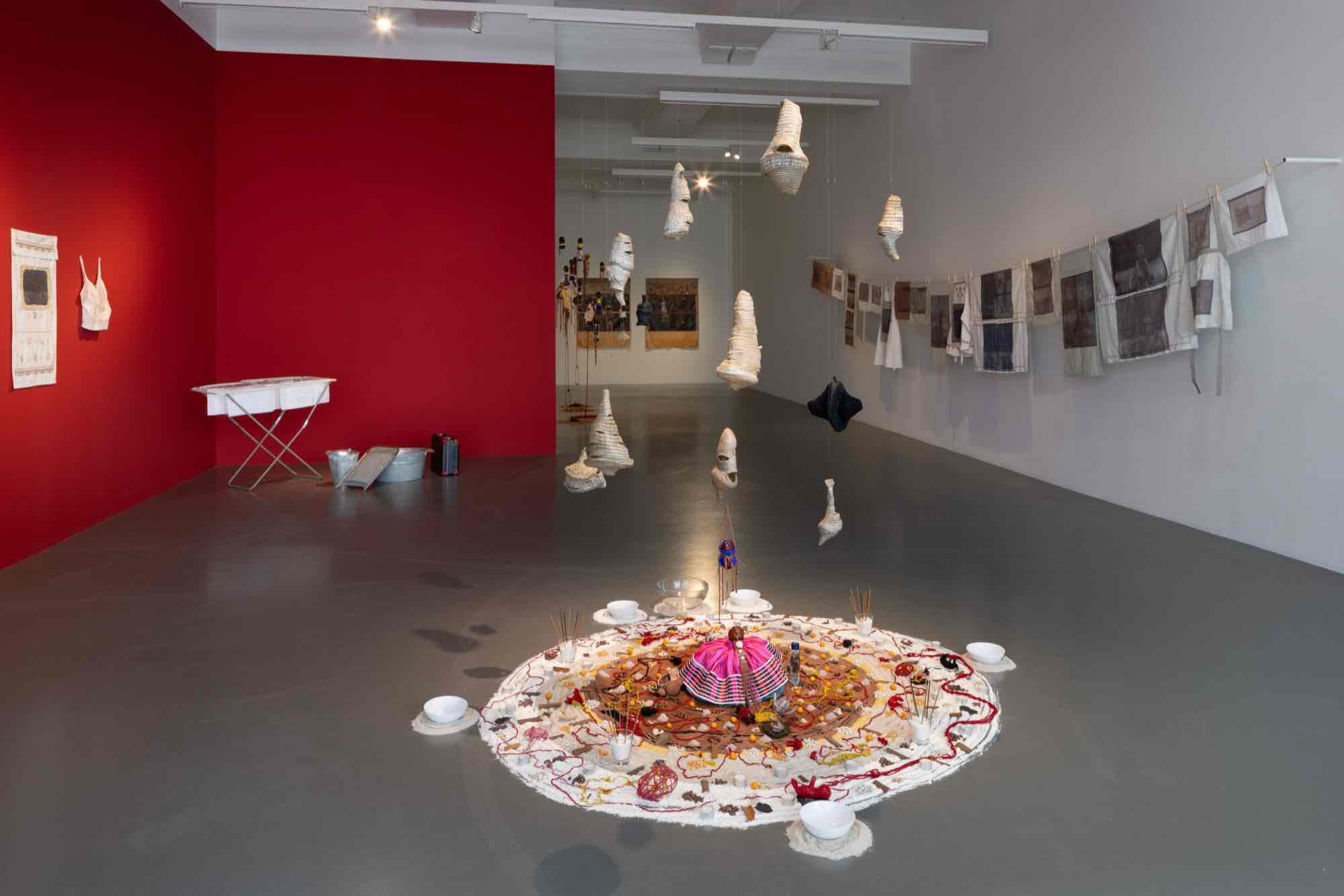
Exhibition views “Ousie Martha” daadgalerie 06/2024 (photos: Thomas Bruns / Berliner Künstlerprogramm)
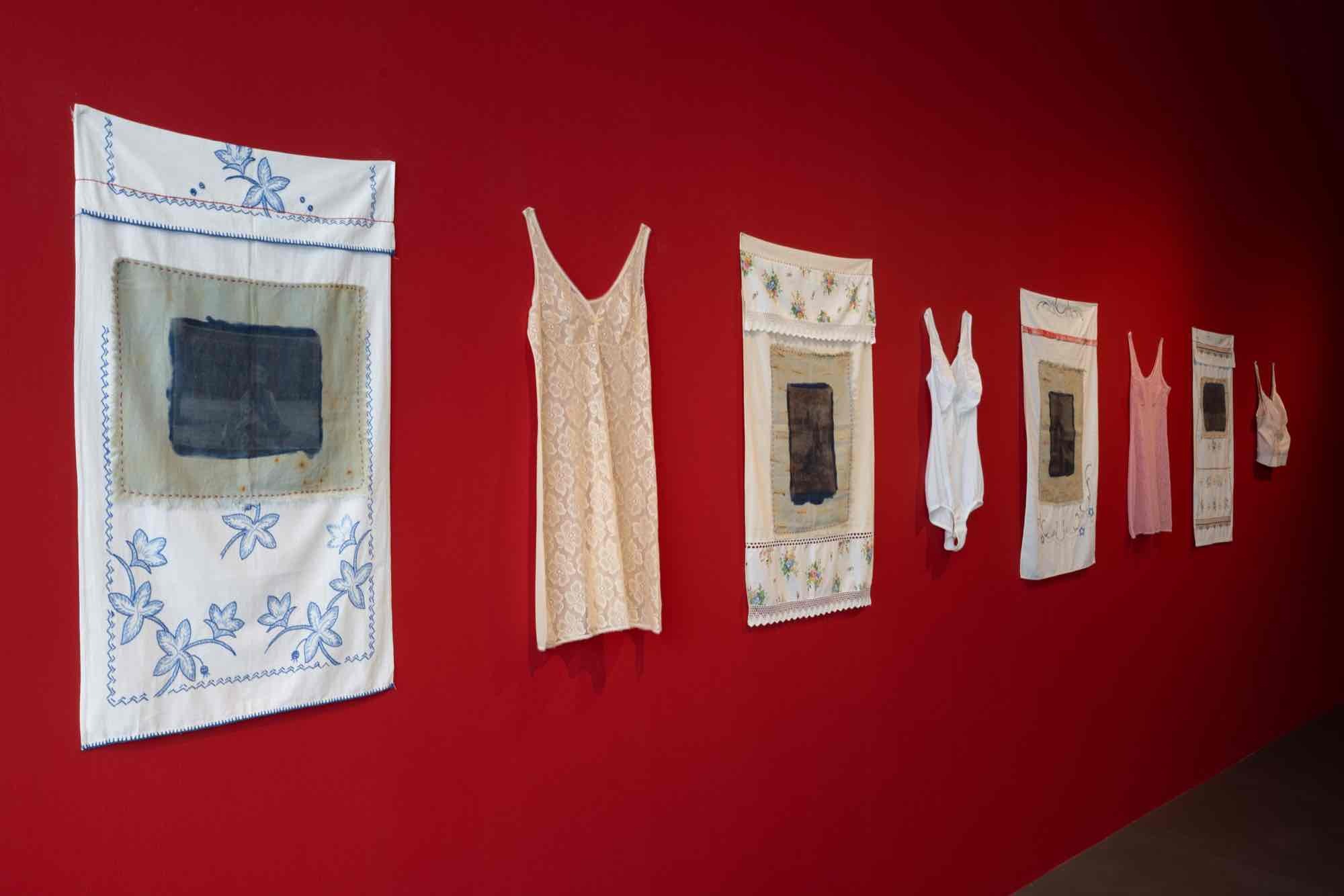
Exhibition views “Ousie Martha” daadgalerie 06/2024 (photos: Thomas Bruns / Berliner Künstlerprogramm)
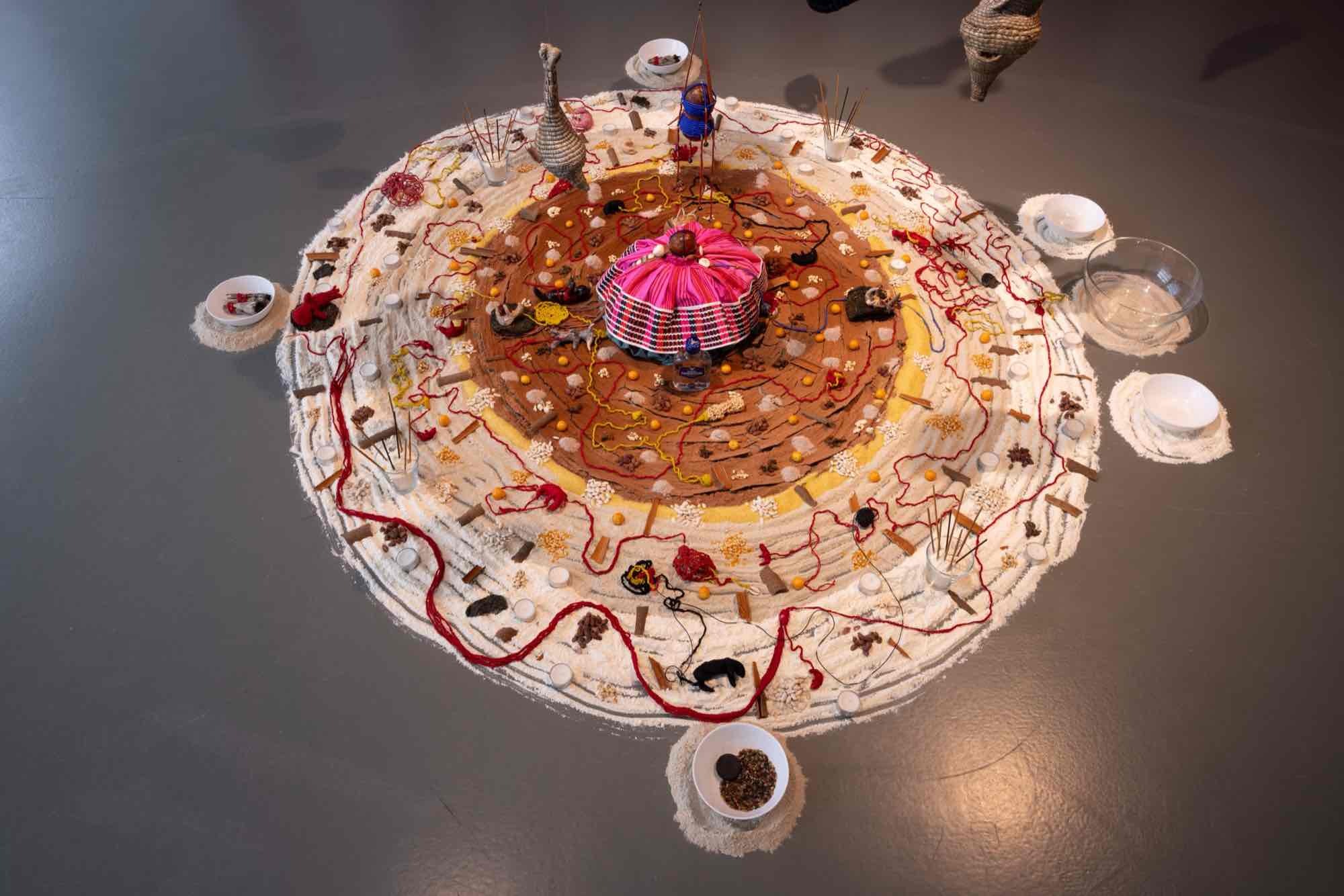
Exhibition views “Ousie Martha” daadgalerie 06/2024 (photos: Thomas Bruns / Berliner Künstlerprogramm)
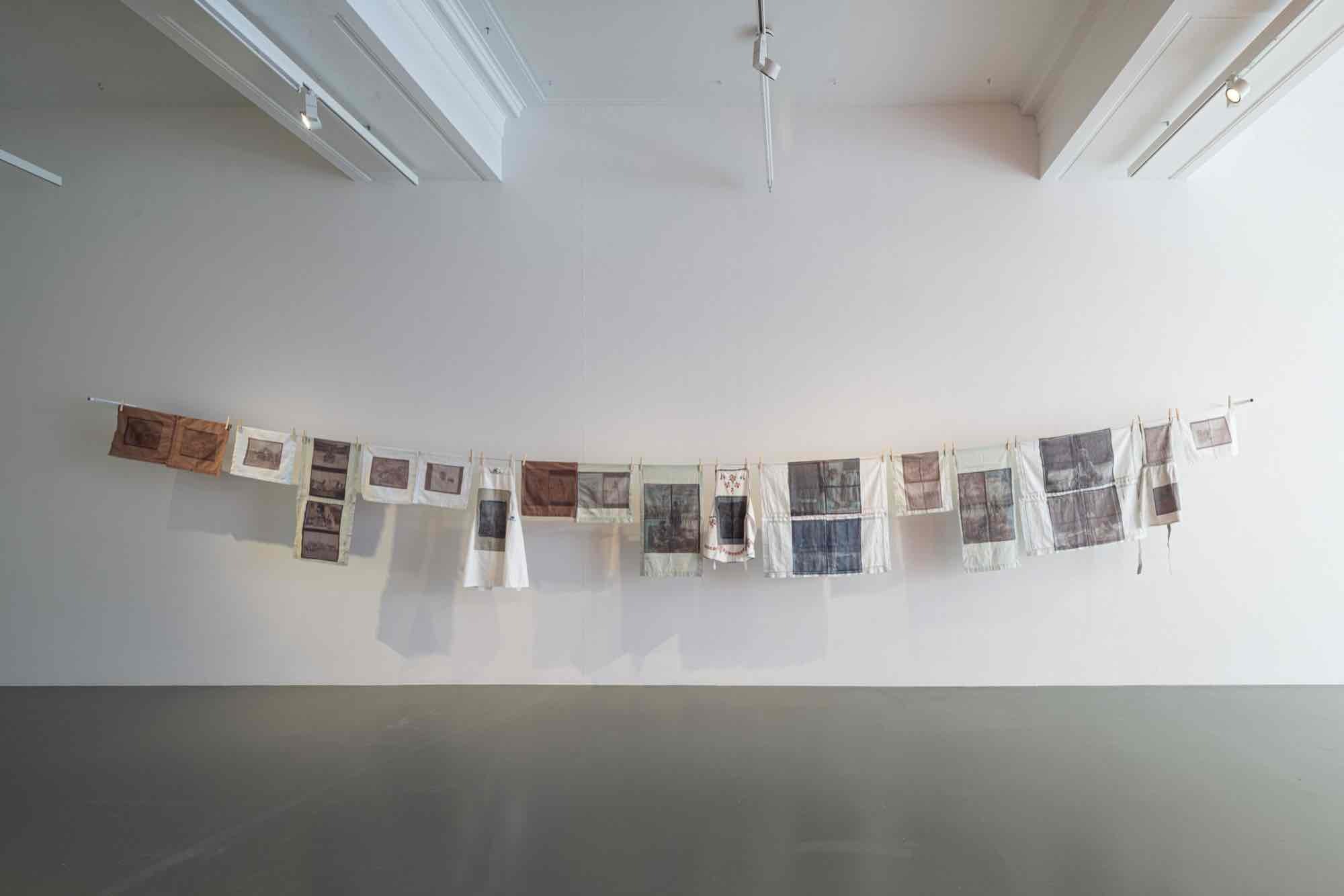
Exhibition views “Ousie Martha” daadgalerie 06/2024 (photos: Thomas Bruns / Berliner Künstlerprogramm)
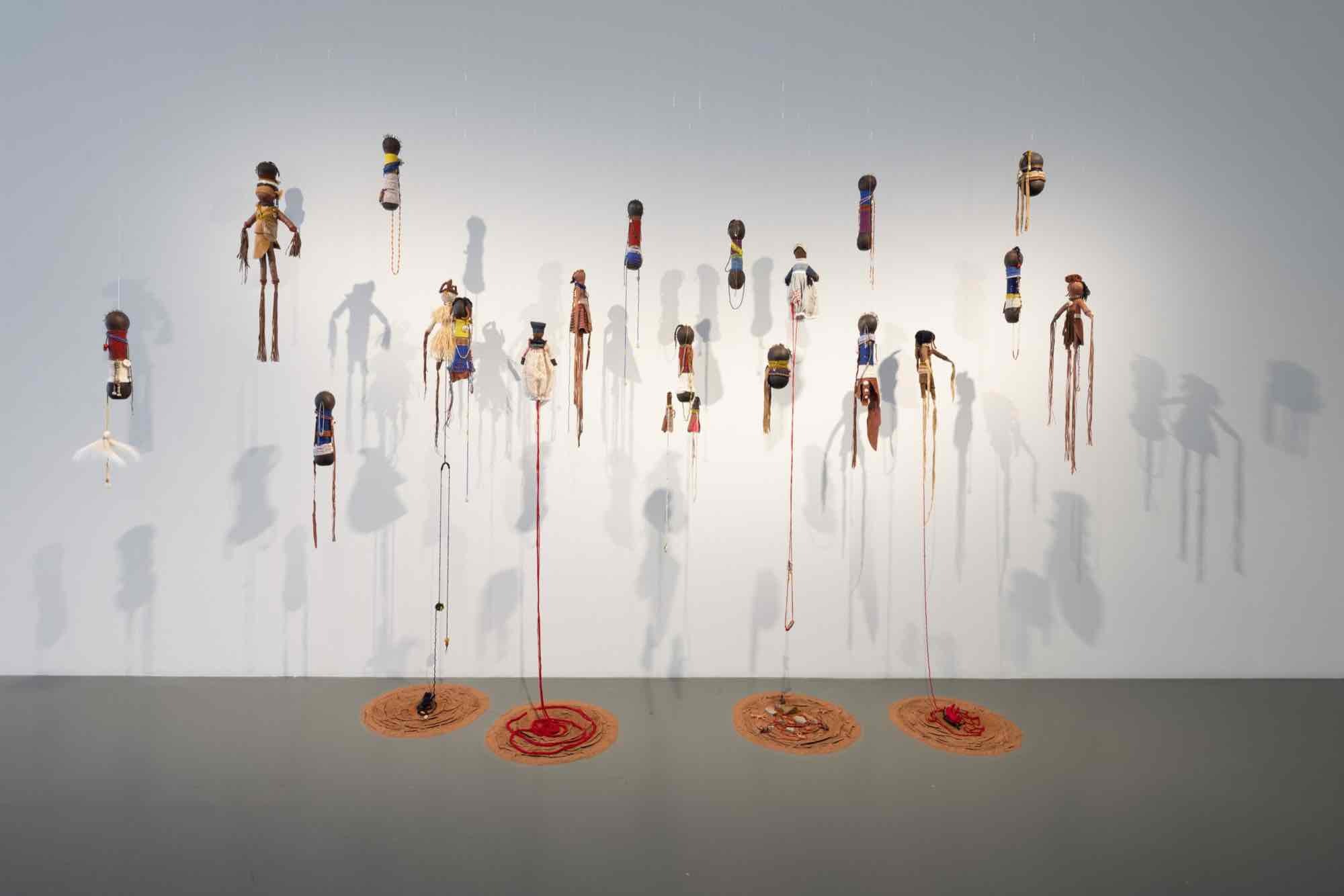
Exhibition views “Ousie Martha” daadgalerie 06/2024 (photos: Thomas Bruns / Berliner Künstlerprogramm)
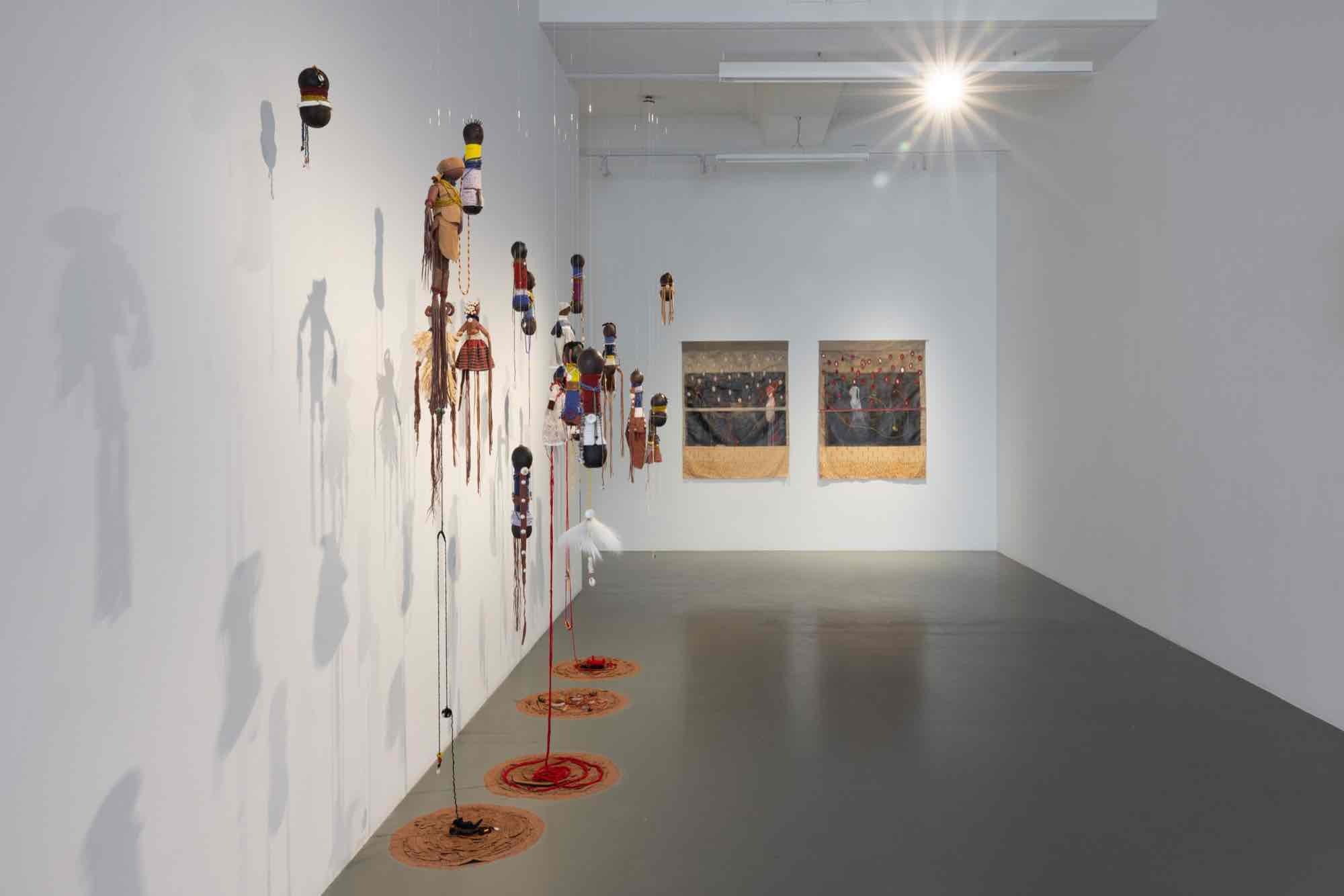
Exhibition views “Ousie Martha” daadgalerie 06/2024 (photos: Thomas Bruns / Berliner Künstlerprogramm)
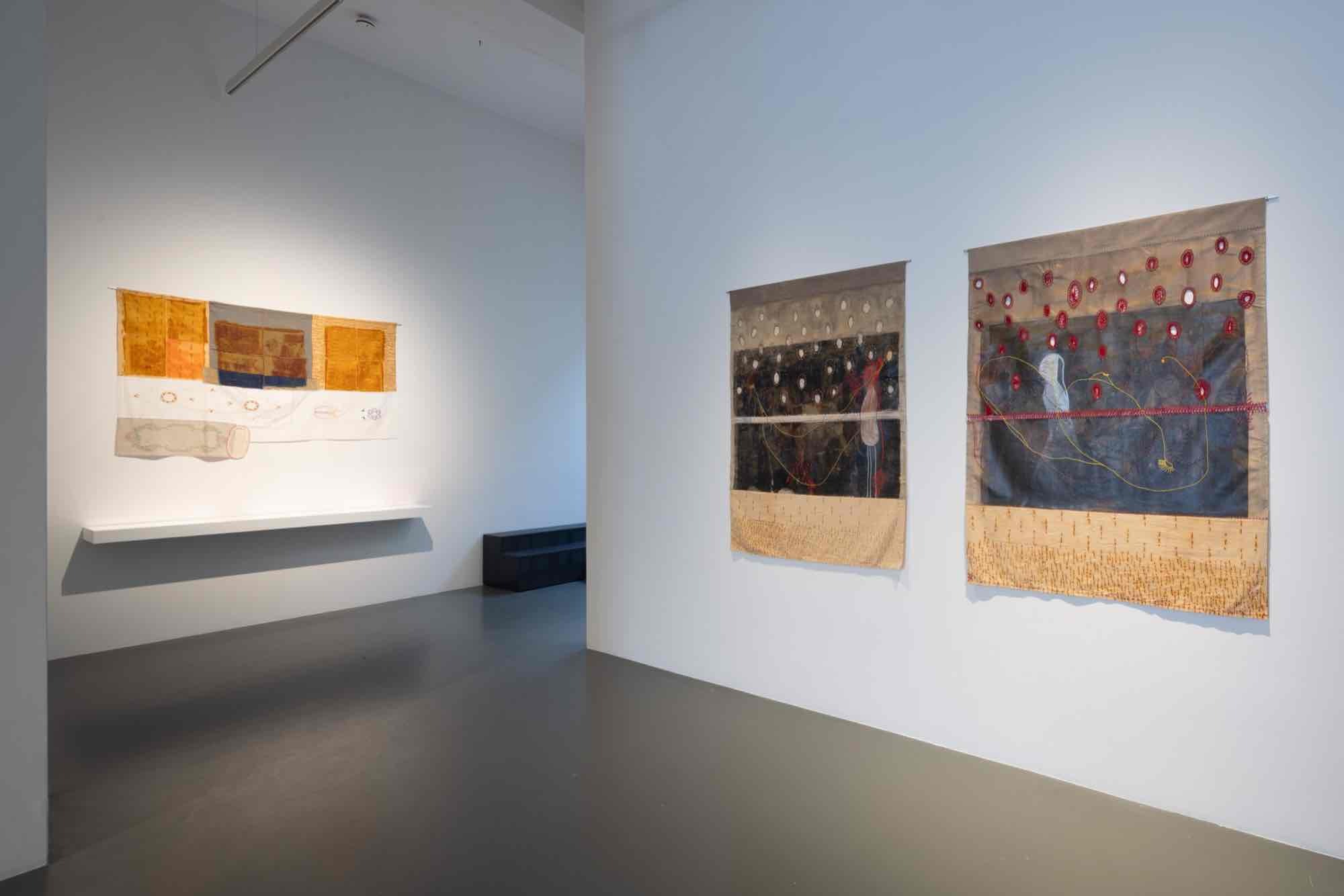
Exhibition views “Ousie Martha” daadgalerie 06/2024 (photos: Thomas Bruns / Berliner Künstlerprogramm)
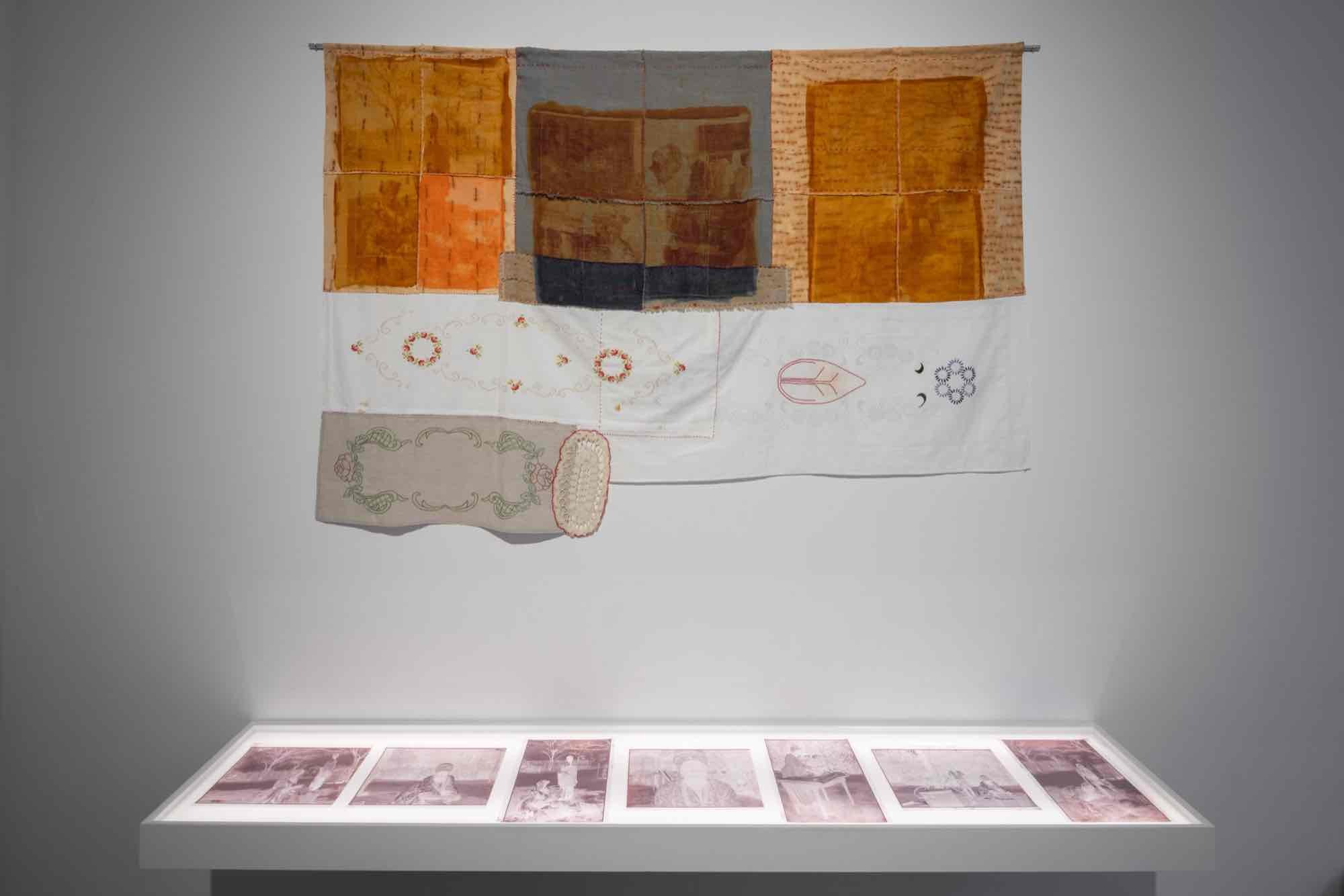
Exhibition views “Ousie Martha” daadgalerie 06/2024 (photos: Thomas Bruns / Berliner Künstlerprogramm)
Tuli Mekondjo creates delicate yet powerful textile-based artworks and multilayered performances that address the colonial history of Namibia and expose the harsh realities of violence, repression, and loss that continue to affect her homeland’s diverse communities and cultures. With this poetic and highly personal body of work, Tuli Mekondjo demands the acknowledgment of possible narratives and experiences that were never realized and calls for the return of illegally expropriated cultural objects and traditions.
In Ousie Martha, Tuli Mekondjo focuses on the significance and ramifications of (forced) female labor in Namibia. The works on show reflect upon the power structures that were introduced to Namibia under colonial rule and still influence its various social and cultural groups. Tuli Mekondjo examines radical forms of inscription in everyday contexts, for example by reframing imagery from historical photographs held in European archives or by referencing imposed clothing styles, domestic work carried out by Namibian women, and the languages that are officially spoken in the country as opposed to those that have been lost. The restoration of fertility channels as a healing process and a way to connect with and honor her ancestors is central to Tuli Mekondjo’s artistic engagement with her own biography. This is particularly evident in her work Ounona vedu (Children of the soil, 2023): by recreating the fertility dolls that served a symbolic purpose and were passed down the generations in pre-colonial Aawambo communities, but now only exist in the collections of western ethnographic museums, Tuli Mekondjo mends a broken link to her personal identity.
In Ousie Martha, Tuli Mekondjo focuses on the significance and ramifications of (forced) female labor in Namibia. The works on show reflect upon the power structures that were introduced to Namibia under colonial rule and still influence its various social and cultural groups. Tuli Mekondjo examines radical forms of inscription in everyday contexts, for example by reframing imagery from historical photographs held in European archives or by referencing imposed clothing styles, domestic work carried out by Namibian women, and the languages that are officially spoken in the country as opposed to those that have been lost. The restoration of fertility channels as a healing process and a way to connect with and honor her ancestors is central to Tuli Mekondjo’s artistic engagement with her own biography. This is particularly evident in her work Ounona vedu (Children of the soil, 2023): by recreating the fertility dolls that served a symbolic purpose and were passed down the generations in pre-colonial Aawambo communities, but now only exist in the collections of western ethnographic museums, Tuli Mekondjo mends a broken link to her personal identity.
